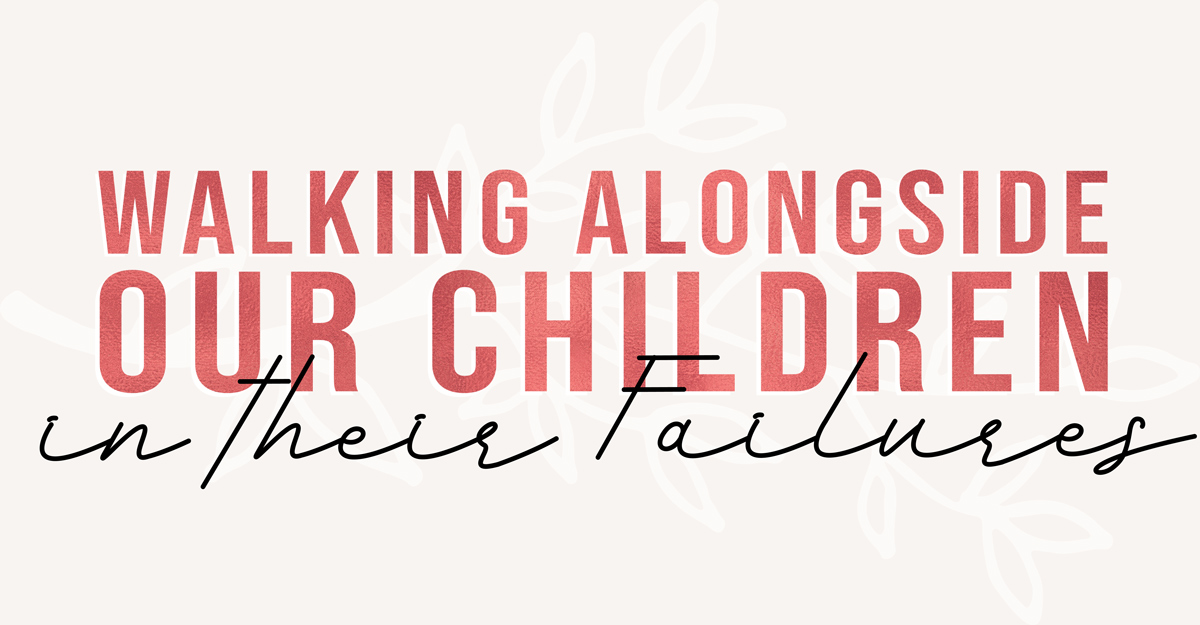![]() Enhanced – read by the author
Enhanced – read by the author



by Connie Albers
My parents didn’t make a fuss if I didn’t get straight A’s or made mistakes. Their usual response was, “Did you do your best?” If my answer was yes, the matter was settled as far as they were concerned. They encouraged me to try new things and never give up. As a little girl, I remember being a risk-taker. I can’t recall being afraid of trying new things. I believed if things didn’t work out, I could always try again.
Throughout my teen years this mindset served me well, but as a parent I’ve discovered that not every child is wired this way.
It’s not a matter of if your children will fail, but what they will do—how they will respond—when it happens. Our children need to learn that everyone fails at something. And as parents we have the privilege of helping them face their fear of failure so they can overcome it. But how?
Before addressing the issue with your children, take some time to pray and observe. Then you’ll be ready to respond in a way that encourages them to embrace failure as an opportunity.

Pray. I know you’ve heard this before and for good reason! It is where we should start. Ask God to give you insight to answer these questions.
- Why are they afraid to fail?
- Are they trying to please or win approval from us?
- Do they have perfectionistic tendencies?
- Is there a real fear of being shamed or embarrassed?
Observe. Pay attention to what your children say. Children will give you clues about what they are thinking through their words, attitude, and actions.
- Do they seek affirmation before starting anything new?
- Are they asking for validation along the way?
- Do they say things like, “I’m so dumb. I can’t do it. Everyone will make fun of me.”?
Respond. Discerning the answers to these questions will help you to respond in a way that is most helpful for each of your unique children. Our response will directly impact how they will learn to respond. Modeling is an incredibly powerful teaching tool.
List fears. Help your children identify the source of their fears by writing them down. When your children learn to put words to their feelings, you can then teach them how to address their fear from a biblical perspective.
Behind many fears is worry about looking foolish, not meeting expectations, or doing something wrong. By framing a situation your children are facing differently before they attempt it, they may be able to avoid some anxiety associated with trying.
Redefine failure. The dictionary defines failure as “lack of success; an unsuccessful person, enterprise, or thing.” Success means “the accomplishment of an aim or purpose.”
The word is all about the final result… not the process. What if we instead defined it as an opportunity to learn, grow, and move forward? How would that change our children’s view of failure and their response to it?
Focus on lessons, not the failure. You and I know things don’t always happen the way we want them to—but by teaching your children to understand that reality, they can be prepared to get the most value out of the experience, no matter the outcome.
Emphasize effort. Children can confuse effort with ability. When we focus solely on their abilities, they will begin to believe that talent trumps hard work and perseverance. This requires a shift in the way we talk to them during the process. For example, instead of saying something like, “You are such a great musician!” say, “I love how you practiced (skill, song, etc.) each day this week.” Remind them: If you gave your best effort using the ability God gave you… that is enough. It’s not about perfection!
Show empathy. You’ve experienced failure, so be honest and let them know how you felt. Share your own fears of failure. Ask them how they are feeling. Then commit to walking alongside them in their failures.
Don’t always rescue. At first glance, this may seem to negate the idea of walking alongside them in their failures. But there’s a big difference between walking alongside your children and trying to fix the problem yourself. It’s so easy to fall into that trap. Remember the “pray” part? This is one of those times it’s crucial. We need wisdom to know when it’s time to step in and when it’s time to step away. Ask God, “How can I encourage and support my children?”
Remind them of their identity. Identity isn’t found in grades, performance, or success. Their identity is in Christ. Created in the image of God, our children have intrinsic value in who and Whose they are, not in the things they accomplish.
Everyone experiences failure in their lives. We often equate failing with the idea of falling down. Instead of focusing on the falling down, encourage your children to focus on how they can get up again. Help them to realize that failure isn’t “the end” but an opportunity to learn and grow.

